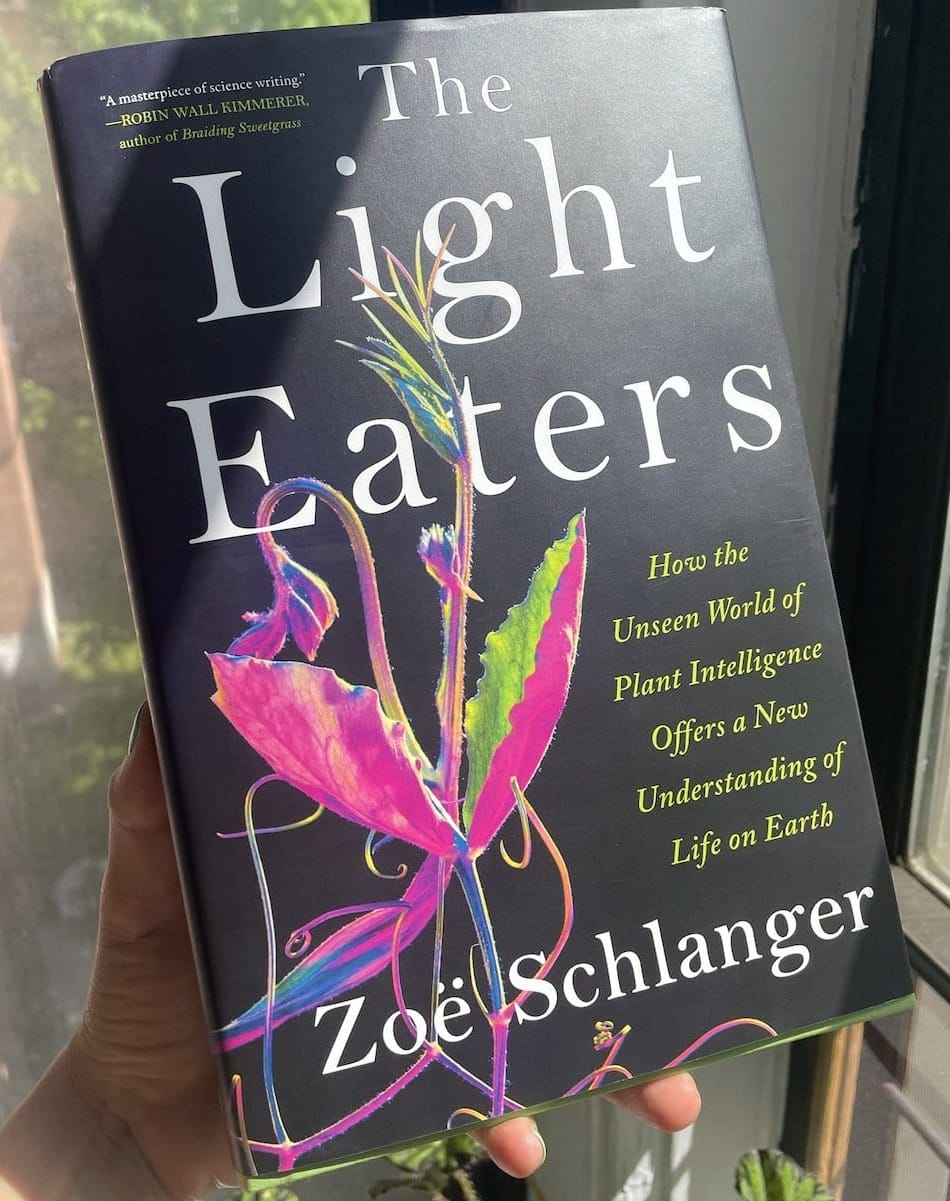The Light Eaters

Today, Zoë Schlanger officially launches her new book, 'The Light Eaters — How the Unseen World of Plant Intelligence Offers a New Understanding of Life on Earth,' with the promotion tagline: 'You may never look at plants in quite the same way again.'
In "The Light Eaters," Schlanger reexamines plant life, positing that plants possess a form of intelligence that has gone unrecognized by mainstream science. She details how plants communicate, adapt, and make strategic decisions, thus challenging our standard definitions of sentience and portraying plants as active, dynamic agents within their ecosystems, capable of complex behaviors that hint at a form of consciousness.
As I've mentioned in this blog, science's cautious approach to new claims is understandable due to its reliance on replicable experiments — a bar personal anecdotes can't meet. Our experiences with our pets, like dogs, cats, or birds, hint at a broader spectrum of consciousness. Yet, it appears that the scientific perspective on what might possess consciousness is finally expanding, now including plants.
It's also noteworthy that the New York Declaration on Animal Consciousness was recently updated and signed on April 19, 2024. It recognizes the consciousness of a broad range of animals, from all vertebrates to several invertebrates like octopuses and insects. This challenges long-standing biases and calls for an ethical reconsideration of our interactions with all forms of life.

Schlanger discusses "plant blindness," a term Elizabeth Schussler and James Wandersee coined in 1998 to describe the inability to notice the plants in one's environment, thereby underappreciating their significance.
The book showcases recent research and takes us on a journey across the globe, giving us a much needed fresh perspective. Researchers have uncovered that plants can communicate, recognize relatives, behave socially, perceive sounds, morph to blend with their environment, store memories that guide their life cycles and manipulate animals to their advantage, among other impressive abilities. "The Light Eaters" dives deep into the dramatic world of plant life, revealing a complexity that calls into question our notions of agency, consciousness, and intelligence. Upon closer examination, it becomes clear that plant intelligence doesn't resemble our human brain centered intelligence; it may have developed as an entirely different yet parallel system.
I just started reading the book; most of the notes from this entry come from listening to the author on her NPR Fresh Air Podcast interview—a tip from my wife. ;) The depth and scope of the content go beyond what I can encapsulate in one short blog entry, but I highly recommend giving it a read or a listen for a deeper dive.
Final Thought: Rachel Carson, pioneering environmentalist and author, once expressed wonder at the natural world, fostering a sensitivity toward our environment. As our understanding of plant intelligence deepens, we are prompted to reconsider our perceptions of life and consciousness. How could this expanding view of consciousness across different life forms influence our interactions with the plant and animal species with which we share the world?


